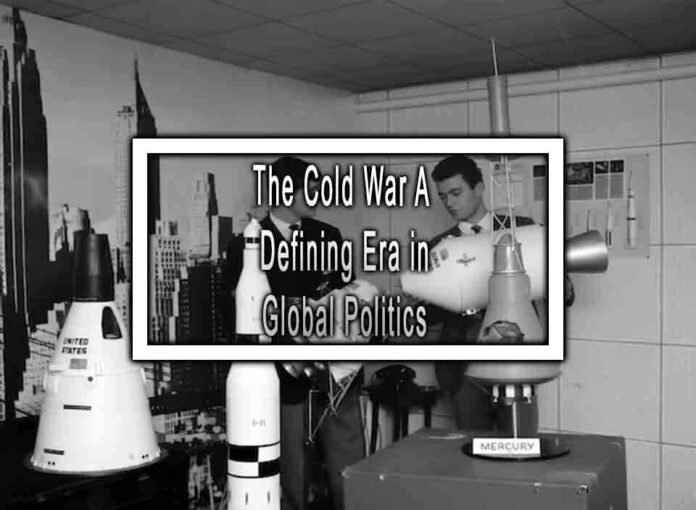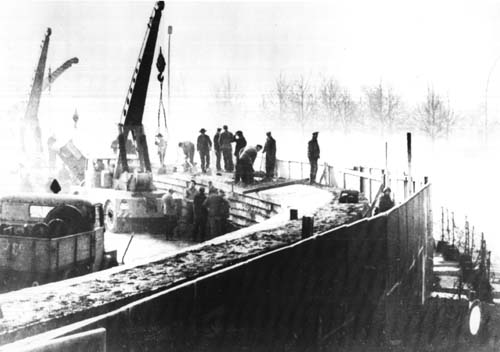The Cold War was indeed a defining era in global politics that lasted for much of the 20th century. It was characterized by intense ideological, political, and military rivalry between the United States and the Soviet Union, along with their respective allies. Here’s an exploration of the Cold War’s key aspects and its impact on global politics:
1. Ideological Conflict:
- The Cold War was primarily an ideological struggle between two superpowers with contrasting political and economic systems. The United States championed capitalism, democracy, and individual freedoms, while the Soviet Union promoted communism, state control of the economy, and one-party rule.

2. Bipolar World Order:
- The Cold War divided the world into two opposing blocs: the Western bloc led by the United States and the Eastern bloc led by the Soviet Union. These blocs, along with their respective allies, competed for influence on a global scale.
3. Nuclear Arms Race:
- The Cold War witnessed a dangerous nuclear arms race between the United States and the Soviet Union. Both superpowers developed vast arsenals of nuclear weapons, leading to the concept of mutually assured destruction (MAD), where the use of such weapons would lead to the annihilation of both sides.
4. Proxy Wars:
- Rather than engaging in direct military conflict, the superpowers often fought proxy wars in other countries. Examples include the Korean War, the Vietnam War, and conflicts in Africa, Central America, and the Middle East, where each side supported opposing factions.
5. Space Race:
- The Cold War extended into the realm of space exploration. The United States and the Soviet Union competed to achieve milestones in space, including the launch of the first satellite (Sputnik) and the first human in space (Yuri Gagarin).
6. Cuban Missile Crisis (1962):
- The Cuban Missile Crisis brought the world to the brink of nuclear war. It was a 13-day standoff between the United States and the Soviet Union over the presence of nuclear missiles in Cuba. Diplomacy ultimately prevailed, leading to the removal of the missiles.
7. Détente:
- In the 1970s, there was a period of détente, characterized by a thawing of Cold War tensions. Both superpowers engaged in arms control negotiations, such as the Strategic Arms Limitation Talks (SALT) agreements, and sought to reduce the risk of direct conflict.
8. End of the Cold War:
- The Cold War came to an end in the late 1980s and early 1990s with the collapse of the Soviet Union and its Eastern European satellite states. The fall of the Berlin Wall in 1989 symbolized the reunification of Germany and the end of the division of Europe.
9. Impact on Global Alliances:
- The Cold War influenced the formation of global alliances. NATO (North Atlantic Treaty Organization) and the Warsaw Pact were key military alliances that provided security for their respective blocs.
10. Global Influence:
The Cold War had a profound impact on global politics, economics, culture, and diplomacy. It shaped the behavior of states and non-state actors alike and influenced the development of international institutions.
11. Legacy:
The end of the Cold War had significant implications for global politics, including the expansion of NATO, the spread of democracy and capitalism, and the emergence of new geopolitical challenges. The legacy of the Cold War continues to influence international relations today.
The Cold War was a defining era in global politics, characterized by intense rivalry, ideological conflicts, and the ever-present specter of nuclear war. Its conclusion marked a shift in the global balance of power and reshaped the dynamics of international relations, but its impact is still felt in contemporary geopolitics.












